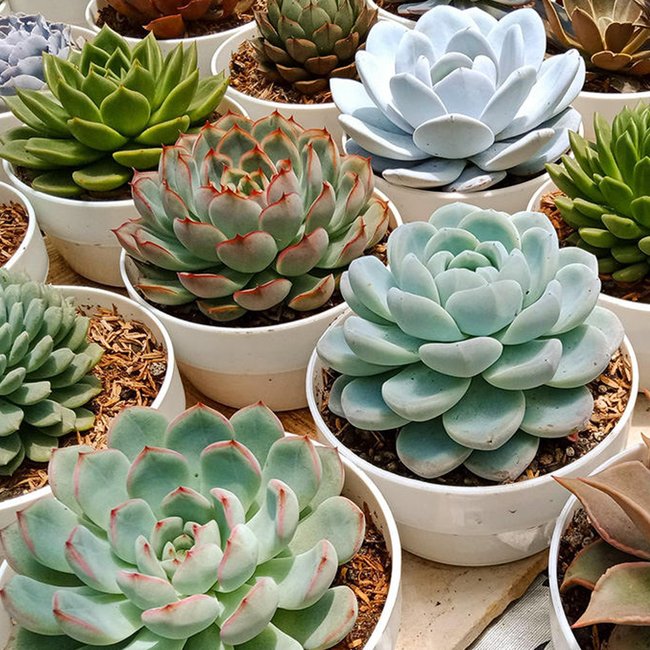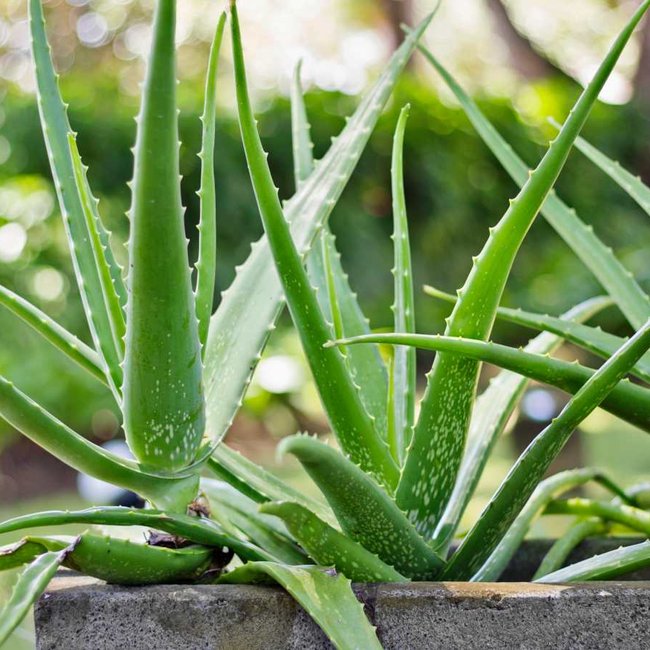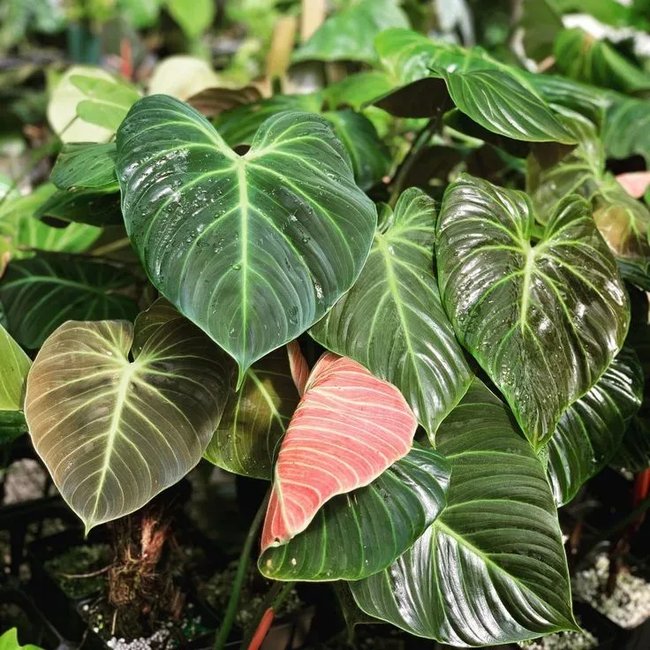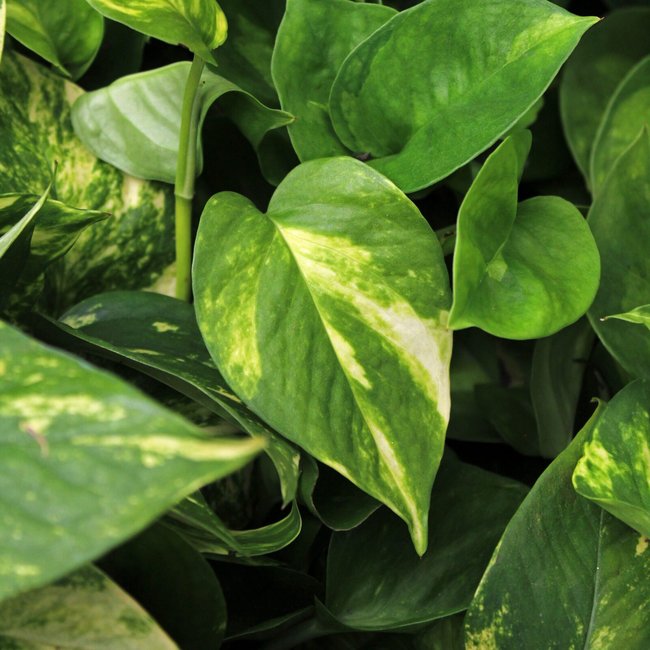Carnations
Carnations are a species of flowering plants that are part of the family of Caryophyllaceae. They are known for their vibrant colors and unique fragrances.
Classification and Taxonomy
Carnations belong to the family Caryophyllaceae, and the genus Dianthus.
Description and Characteristics
Carnations are herbaceous annuals and perennials that grow up to 30-90 cm tall. The leaves are linear to lanceolate and the flowers are usually pink, white, yellow, or red. The flowers have a unique fragrance and are used in bouquets, as decorations, and for medicinal purposes.
Distribution and Habitat
Carnations are native to Europe, North Africa, and Asia. They are found in fields, meadows, and gardens.
Ecology and Reproduction
Carnations are pollinated by bees, butterflies, and other insects. The flowers produce seeds, which can be used for propagation.
Uses and Economic Importance
Carnations are widely used for ornamental purposes, as well as for medicinal purposes. The flowers are also used to make perfumes and essential oils.
Conservation Status
Carnations are not considered to be threatened or endangered.
-
What are carnations?
Carnations are a type of flower that belong to the family Caryophyllaceae. They are native to the Mediterranean region and have been cultivated for their decorative and fragrant qualities for centuries. Carnations are known for their ruffled petals and come in a wide range of colors including pink, red, white, yellow, and purple.
-
How do you care for carnations?
Carnations thrive in well-draining soil and require full sunlight to grow. Water the plants regularly but avoid overwatering as this can lead to root rot. Deadhead the flowers regularly to promote new growth and fertilize the plants with a balanced fertilizer every two weeks during the growing season.
-
How long do carnations last?
Carnations are known for their long vase life and can last up to three weeks with proper care. However, the exact lifespan of the flowers will depend on factors such as the variety of carnation, the growing conditions, and how well they are cared for.
-
What do different colors of carnations symbolize?
The symbolism of carnation colors varies depending on the culture and occasion. In general, pink carnations are associated with love and admiration, red carnations symbolize love and affection, white carnations represent purity and luck, purple carnations are associated with capriciousness, and yellow carnations symbolize disappointment or rejection.
-
Can carnations be grown indoors?
Yes, carnations can be grown indoors as long as they receive adequate sunlight and are planted in well-draining soil. Indoor carnations may require extra care to protect them from pests and diseases, and may need to be fertilized more frequently than outdoor plants.
-
Can carnations be used for medicinal purposes?
Yes, carnations have been used for medicinal purposes for centuries. The flowers and seeds contain compounds that have anti-inflammatory, anti-bacterial, and anti-fungal properties. They have been used to treat a range of ailments including digestive issues, skin irritations, and respiratory problems. However, it is important to note that the use of carnations for medicinal purposes should be done under the guidance of a healthcare professional.
-
What are some popular varieties of carnations?
Some popular varieties of carnations include the spray carnation, which has multiple flowers on a single stem, the standard carnation, which has a single large flower on a stem, and the dwarf carnation, which is a smaller version of the standard carnation. Other popular varieties include the picotee carnation, which has a distinctive edge on the petals, and the chabaud carnation, which has a fragrant, double flower.
-
Are carnations used in weddings?
Yes, carnations are a popular choice for weddings due to their long vase life and affordability. They are often used in bridal bouquets, centerpieces, and as boutonnieres. The symbolism of the flower colors can also be incorporated into the wedding theme, with pink carnations representing love and admiration and white carnations representing purity and luck.
-
How are carnations propagated?
Carnations can be propagated through cuttings or seeds. To propagate through cuttings, take a stem cutting in the spring or summer and remove the lower leaves. Plant the cutting in well-draining soil and keep it moist until it roots. To propagate through seeds, sow the seeds in a seed tray in the spring and keep them moist until they germinate. Transplant the seedlings into individual pots or into the garden once they are large enough to handle.
-
Can carnations be grown year-round?
Carnations are typically grown as annuals or biennials, meaning they complete their life cycle in one or two years. However, with proper care and growing conditions, it is possible to keep carnations blooming year-round. This may require providing extra light and warmth for the plants, as well as careful attention to watering and fertilization.
-
How do you preserve carnations?
Carnations can be preserved by drying, pressing, or freezing. To dry carnations, hang them upside down in a warm, dry place until they are completely dry. To press carnations, place them between two sheets of paper and press them with a heavy object until they are flat. To freeze carnations, dip them in liquid nitrogen or place them in a plastic bag and freeze them for several hours. Preserved carnations can be used for a variety of crafts and decorations.
10 Fun Facts About
1. Carnations are the second most popular flower in the world. 2. The scientific name for carnations is Dianthus caryophyllus. 3. Carnations are believed to have originated in the Mediterranean region. 4. Carnations can grow in a variety of soils and climates. 5. Carnations can last up to two weeks when cut. 6. Carnations come in a variety of colors, including pink, white, yellow, and red. 7. Carnations are often used as a symbol of love and affection. 8. Carnations are a popular choice for weddings and other special occasions. 9. Carnations are edible and can be used to make tea. 10. Carnations are the national flower of Spain.
Pun
Don't be so carnation-al, it's not that bad!
Similar To
Roses, Pinks, Sweet Williams, Baby's Breath Keywords: Carnations, Dianthus caryophyllus, Caryophyllaceae, Herbaceous Annuals, Perennials, Pollination, Ornamental, Medicinal, Essential Oils, Love, Affection, Wedding, Spain.







